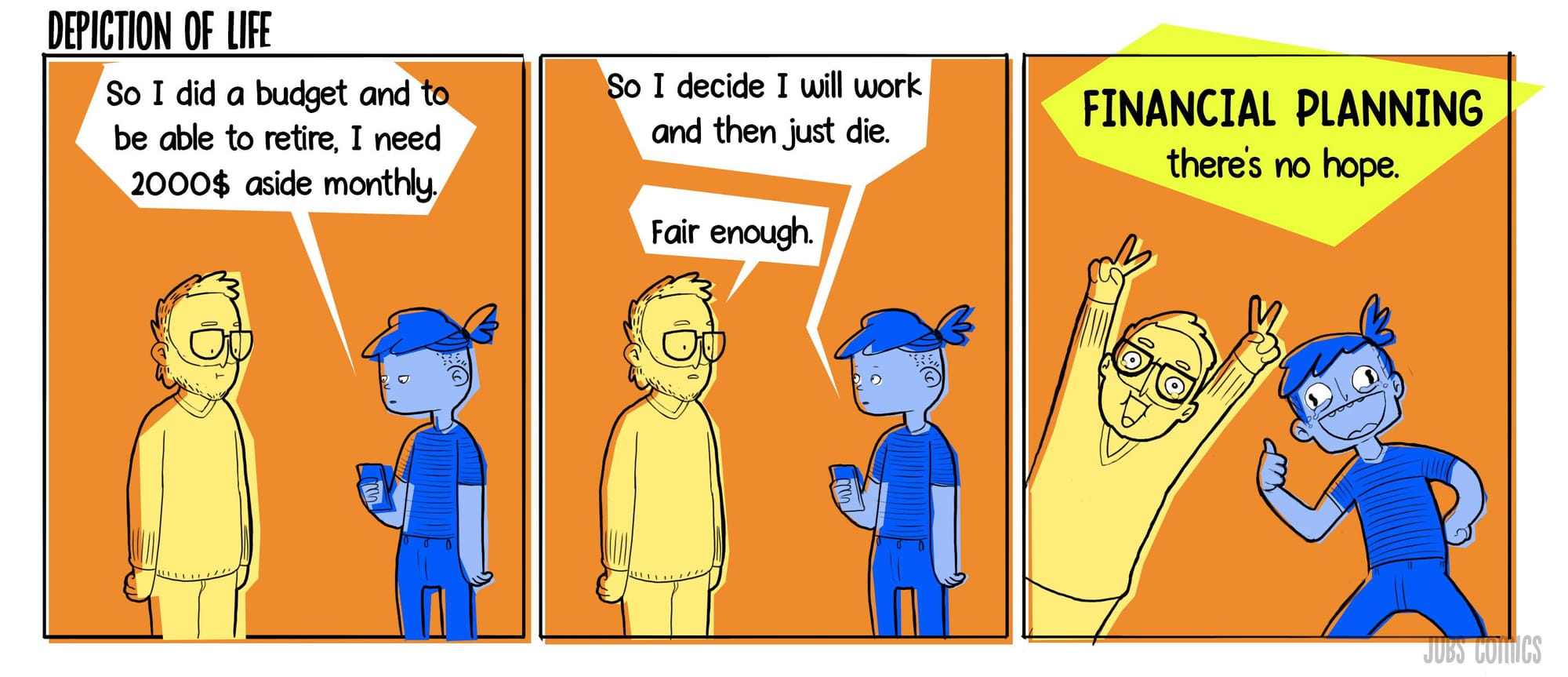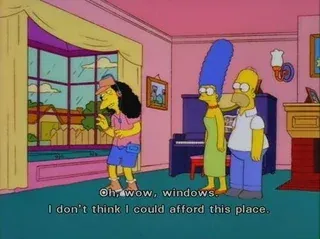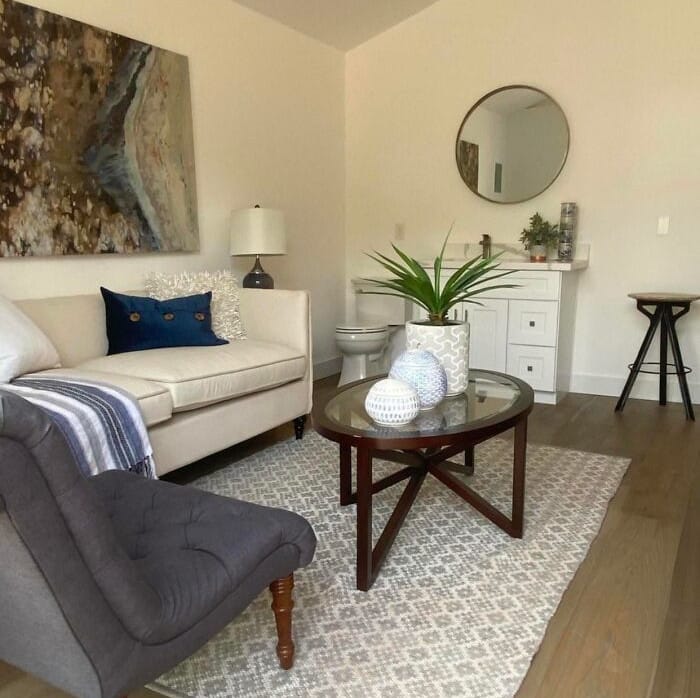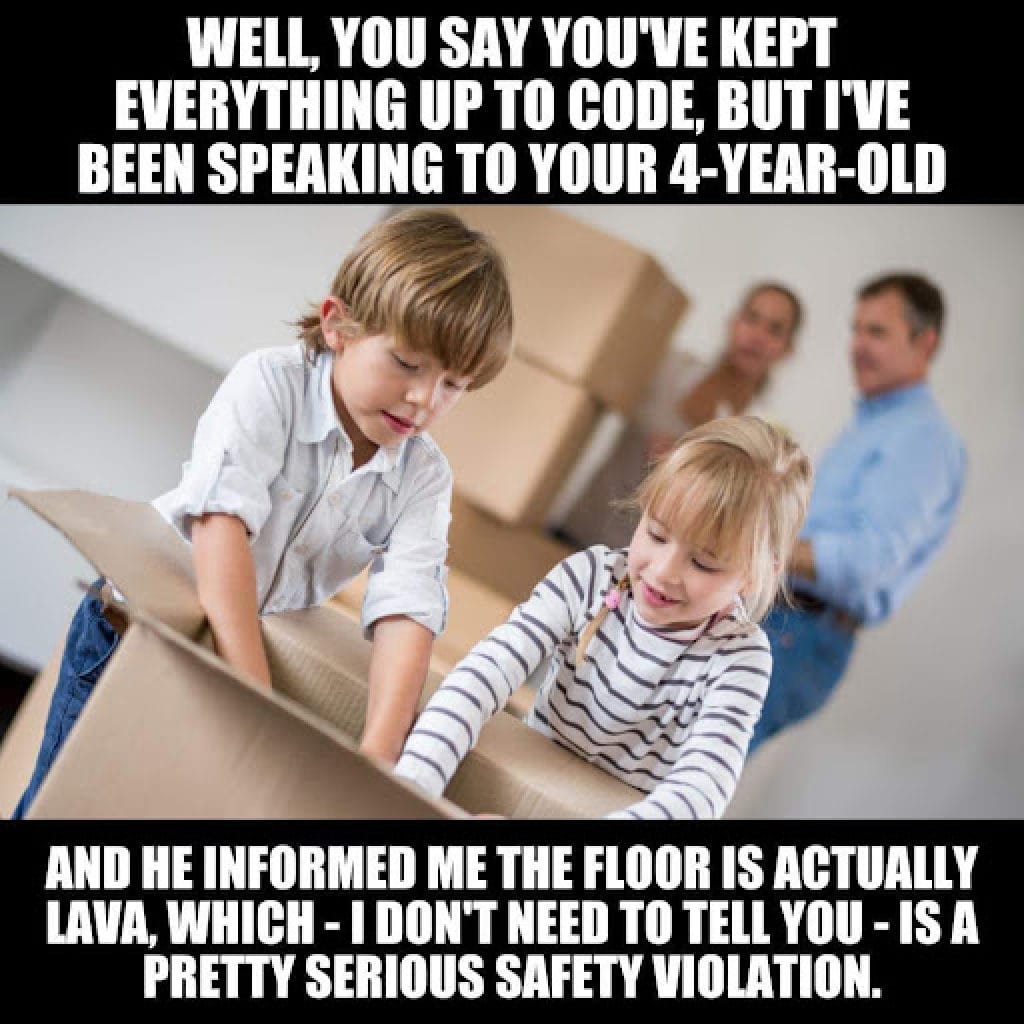I'm proud to share that I recently purchased my first home. It's a lovely little townhouse in Denver, and fits me like a glove. The process was surprisingly straightforward for me, with less competition and bidding wars than typical for the Denver market. Of course that's because a global recession and tense geopolitical stage means that mortgage rates are very high, and nobody else is buying.
So, you win some and you lose some...

In any case, I learned a lot of things along the way in my first home buying process. I also had some novel ideas which paid off. Since I've got some friends and family gearing up to make their own purchases soon, I figured it'd be worthwhile for me to sit down and write this article. This won't be an exhaustive guide, but rather some personal musings and food for thought. I'll try my best to keep it brief, and hopefully somewhat entertaining...but it's a rather dry and complex topic!
Finances
First and foremost, I'd be remiss if I didn't start this section with suggesting that you evaluate the financial (and non-financial) benefits and drawbacks to owning a home. Many Americans are raised to chase home ownership as the golden grail of the American dream. The reality is that home ownership is often a poor financial choice, relative to other investment avenues.
In any case, to responsibily buy a home, you'll need to figure out your budget. This is the basis for everything else involved, and it's much better to make an objective analysis ahead of time. Otherwise you could make an emotional decision, and regret it. I could easily ramble here, and have previously written articles on the topic of personal finance. In big strokes, this was my approach to mortgage finances.
- Get a decent idea of mortgage rates in your area. Most advertised rates are low, even if you have prime credit. You can always just reach out to some brokers and ask directly, just make sure they don't do a hard credit pull.
- Estimate the mortgage you can afford. You can use an online calculator, such as this one from NerdWallet. If you're unsure about specific numbers, make a reasonable (but conservative) guess. Remember to also budget for adjacent expenses: taxes, repairs, utilities, water / sewage, etc.
It's also wise to think thoroughly about potential life changes, including various future scenarios. Here's a few prompt questions that you might find helpful:
- How long until being forced to sell the home would be net-neutral?
- Could you afford it if you were forced to take a job for lower pay?
- What is the bare minimum income you need to pay the mortgage?
- How does your city's housing market compare to other investments?
- What's the maximum mortgage you could take without being house poor?
- Could you have alternative living situations to make ends meet, like having a roommate or spouse? If you already have those, what if you didn't?
- Do you think you'll be able to refinance your rate at any point, or recast?
- What other personal financial goals do you have, and how do they stack up?
I personally ran through a number of different scenarios, and crunched the numbers every which way. It took a while, but it was really worth the time. Making such a huge purchase was pretty nerve-wracking. And as I'll mention later, things move very quickly once you're in the market. Doing these calculations ahead of time, without the emotions of a pending purchase, gave me a lot of confidence in pulling the trigger once I did find a home that I loved.

Once you have a budget nailed down, you can start thinking about pre-purchase savings. The standard recommendation is to save 20% of the purchase price for a down payment, which helps you avoid monthly PMI payments. While this is good advice, I was also surprised to learn that PMI payments are based on your credit score and can actually be very low for some people. That being said, the more you can put down up front, the lower your payments, interest, and debt. Just remember to keep a healthy reserve in your savings. You'll want to retain money for emergency expenses, closing costs, moving costs, unexpected initial repairs and potentially even move-in expenses like furniture and decor.
Outlining Your Criteria
After you've settled on a budget range, you can begin outlining your house criteria. Location is one of the most important things to consider in a new home, as it's a direct reflection of your personality and also greatly impacts whether your home investment will appreciate (and at what rate). An amazing home that's in a bad location can easily end up being a terrible purchase. One thing that I did at this stage was make a heat map of neighborhoods that I was interested in.
I'd also recommend starting a document to brainstorm your general criteria. Same as the heat map, this is useful for both yourself and future real estate agent. This document is a great place to start thinking about what you require, and what you're willing to compromise on. Because trust me, you will have to make a compromise on something. For instance, I drew a line at private off-street parking, but I was willing to compromise on what type of parking (e.g. garage or carport).
Market Research
Here's the fun part! Or perhaps the awful part, if you quickly discover that your hard-earned dollars don't go very far in this economy...
Start poking around on websites like Zillow and Redfin to see what the inventory looks like in your area. Keep in mind that you can also change the filters to see recently sold properties, though some of the "too good to be true" deals might be refinances or inheritance purchases. It's also likely that you'll need to adjust your budget and expectations based on what the market is like in your area.
Just like any large purchase, it's very easy to slip into thinking "for a little more money, I can get this too!" Remember that there's always going to be bigger and better available on the market, and always for just an incremental price difference. It's a trap, you fool! If you need to make concessions, start with things like square footage, location or amenities. Not your finances!
Assemble the Squad
Alright, so you've done your research. You've plotted out the finances, you've tamed your expectations, and you've probably even fallen in love with a couple of perfect houses that were sold to someone else. Now it's time to assemble the crew.
Specifically, you'll need a mortgage broker and a real estate agent. I don't have any good advice for this, to be honest, except perhaps start with the agent first. They'll usually have good plugs for mortgage brokers, because a quick and efficient mortgage broker is an asset to them as well. Since you're now about to start actually looking at houses, this is a good time to get your loan pre-approved. When trying to find a real estate agent, here are some things that I considered:
- How many years of experience do they have?
- How many total (and recent) sales do they have?
- How long have they been operating in your area?
- What types of homes do they typically sell? For instance, I avoided real estate agents that seemed to primarily sell mansions. I wasn't buying a mansion.
Lastly, don't be afraid to drop an agent and go with someone else. Try not to waste their time, and always be polite and professional. But if the vibe is wrong or you're not impressed, it's okay to tell them that it's not a good fit.
Starting the Hunt
This is the meat-and-potatoes of buying. Unfortunately it's also the most nerve-wracking, emotionally draining and tiring process.

First and foremost, I'd recommend kicking the tires on some sub-optimal homes. Find a few throwaway places that are in the right neighborhood, but are bad options. This gives you a chance to interact with the real estate agent, and make sure they're a good fit. It also grounds you in the market, and after a few houses you'll start to get a better feel for neighborhoods, the process overall, and the "initial shock" of realizing that the photos never match the reality.
After you've felt the process out, it's time to start flagging actual properties. Your real estate agent, of course, should help you out with this. But you can also obsessively refresh Zillow listings, set up custom searches, and subscribe to emails!
Above all else, you want to be ready to pull the trigger. It's shocking how quickly things go from "yeah this looks nice" to "legally binding documents." It's also shocking how quickly the good properties are scooped up. This stresses the first part of this article, in that you should have a rock-solid idea of your finances and what you're look for so that you can confidently move quickly.
House Hunting Tips
When it comes to scoping out a property, I could easily ramble for quite a while. There's tons of intuitive and obvious things, like making sure it's in good condition and the architecture style is right for you. You'll also start to get pretty good at picking apart listing photos to find the issues before you waste your time.

There are tons of guides online for this, and your real estate agent will also help. That being said, I devised some of my own tactics that I felt were worth sharing:
- Mentally categorize things as "fixable" and "not fixable." For example, you can remodel the bathroom and replace the flooring. You might even be able to do more intensive things like build a garage, just make sure to check with building codes. However you can't really change the floor layout. You probably cannot (reasonably) add forced air HVAC to an old brick house. Perhaps most importantly, you cannot change the neighborhood and location!
- One clever idea that I had (which saved my ass) was to look at reviews of nearby businesses. Does the park down the street have a bunch of comments complaining about drug use? Are there a ton of yellow-flag businesses nearby, such as pawn shops, sketchy liquor stores, etc? The community around a house changes very little and only at a snail's pace, so do your research.
- In the age of the internet, this might shock some of my readers...but you can also just talk to people! Walk around the neighborhood, touch some grass. Find someone walking their dog, and ask how they like living around there. It can feel a little awkward, especially if you're socially anxious...but a few minutes of awkwardness beats thirty years of dealing with a bad purchase decision.
- Lastly, I'd highly suggest visiting during "off-hours." Go cruise through the neighborhood on a weekend night. This is a good way to learn that you might have neighbors partying until 2 AM, or that things get weird after dark.
Pulling the Trigger
Once you decide to place an offer, things will move fast. Your real estate agent will be able to help you through this more than me. But in general, the you'll place an offer, which itself is a legally binding contract. That might sound scary, but there's also lots of ways you could back out. However, do know that it's not a frivolous decision. So don't make an offer unless you're ready to move. Once the offer negotiations are done (and yours is accepted), you'll have a contractually obligated timeline to get everything else done. That means securing the mortgage, getting a pre-purchase inspection, getting the property appraised, getting insurance, etc. The exact timelines will depend on your offer contract.

When it comes to insurance specifically, don't make the mistake I did. I was mentally burnt out on paperwork at this point, and quickly scanned through and accepted most of the default numbers for my insurance policy. I assumed that the insurance agent was overselling me, but was willing to overpay just to avoid dealing with more cognitive overhead. Well...when it came time to renew my policy, I took a deeper look and realized I was dramatically under-insured for personal property protection! I was essentially at the bare minimum coverage in this particular category, which was off by an order of magnitude. Something like a fire or theft would have been extremely devastating.
One other thing to mention at this point, and perhaps it's obvious nowadays. I'd recommend using LLMs such as ChatGPT and Gemini to look through paperwork. As always, proceed with caution and fact check them. But in general I found these tools really useful for parsing through text-heavy paperwork, explaining jargon-heavy legalese and even flagging important bits. Once, Gemini even clued me into a strange clause / typo that my agent had missed in one of my contracts!
If things go well, you'll get your offer accepted and mortgage secured. Congrats, you're basically at the end of the process! Just wrap up all the paperwork. As a real pro-tip for the tech savvy out there, you can use a product such as NotebookLM to aggregate all the related forms into a singular interface. I've found this super useful. For instance you can ask simple questions like "what year was the property built?" The info is somewhere in that mountain of docs, and getting a robot to find it is very helpful. It's also useful for compound questions or analyses that require gathering information from a few sources to answer accurately.
Let's Get Moving
Congrats! You're now a homeowner, and you've got the shiny keys to your perfect little palace. And an even bigger congrats for reading this far into the article. I'm assuming that most know the basics of moving at this point, so will leave that up to the reader. But here's a few special tips that you might consider:
- Get postal mail sorted out. The USPS will forward all your mail, and you can sign up for Paper Karma. It's a very affordable app that allows you to scan postal mail, and automatically unregister you from junk and spam. It drastically reduced the amount of crap newsletters I received.
- Start a document to jot down community notes. With luck, this will be your neighborhood for a while! I found it really rewarding to keep little notes of people I met, points of interest, local businesses, etc.
- Before you move in, considaer doing some pre-move prep. There are certain things that are just infinitely easier in an empty house. For instance, I took the time to clean the attic and crawlspaces, which are now filled with stuff.
Hopefully you found at least some of this useful. Best of luck!
